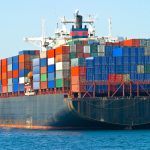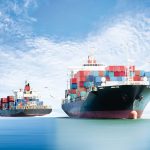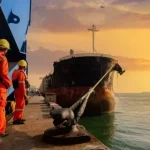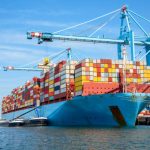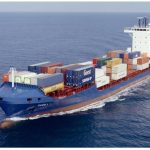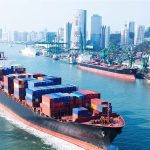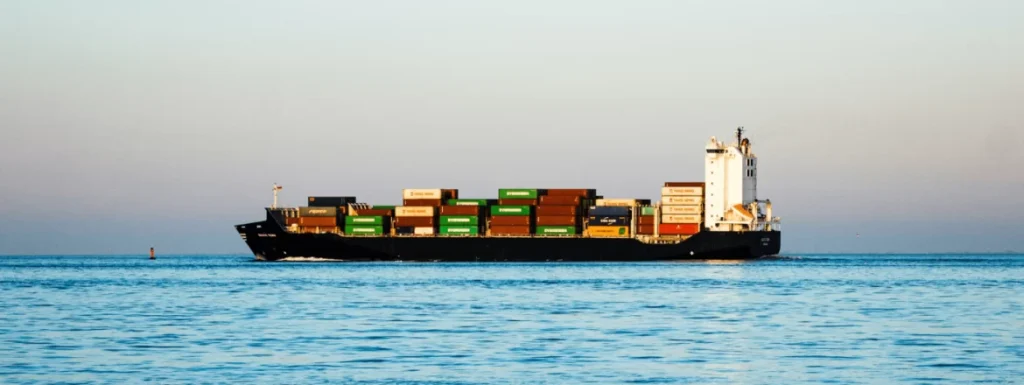
Ship Chartering
Ship chartering is the process of renting or leasing a vessel for the transport of goods or passengers. It plays a vital role in global trade, as it allows companies to secure ships for specific voyages or periods without having to own the vessels. This provides flexibility and cost-effectiveness for businesses, particularly in industries like shipping, logistics, and bulk transport.
There are different types of ship chartering arrangements, each tailored to meet the specific needs of the parties involved. Here’s a breakdown of the key concepts and types of ship chartering:
Types of Ship Chartering
Voyage Charter
- In a voyage charter, the shipowner agrees to carry cargo from one port to another (or multiple ports) for a single voyage or round-trip.
- The charterer is responsible for paying freight rates based on the amount of cargo and the distance traveled.
- The shipowner remains responsible for operating the vessel, providing the crew, and maintaining the ship.
- The charterer generally has no control over the ship’s management or route, except as specified in the contract.
Example: A company may hire a bulk carrier to transport coal from South Africa to China for one specific voyage. After the voyage is completed, the charter agreement ends.
Time Charter
- A time charter involves renting the ship for a specified period of time, regardless of the number of voyages.
- The charterer has control over the employment of the ship, such as selecting cargo, ports, and routes. However, the shipowner still manages the vessel, providing the crew and maintaining the ship.
- The charterer typically pays a daily or monthly rate for the use of the vessel.
Example: A company might rent a tanker for a period of six months to transport oil. During this time, the charterer determines where the vessel will go, but the shipowner manages the ship’s operation.
Bareboat Charter
- In a bareboat charter, the charterer rents the vessel without a crew, supplies, or operational management. The charterer is responsible for all aspects of the ship’s operation, including hiring the crew, maintaining the vessel, and paying for fuel, insurance, and other operating costs.
- This arrangement is typically used for long-term charters.
Example: A company might charter a ship for a year, taking full responsibility for the operation and management of the vessel. The shipowner’s role is limited to ownership and provision of the vessel.
Key Aspects of Ship Chartering
Charter Party Agreement
- A charter party is a legally binding contract between the shipowner and the charterer that outlines the terms of the charter.
- It includes critical details like the duration of the charter, freight rates, the responsibilities of each party, and the terms of payment. The contract is essential for defining rights, obligations, and liabilities of both parties.
Freight Rates
- The freight rate is the cost the charterer pays to the shipowner for the transportation of cargo. It is typically based on factors like the type of cargo, the size of the vessel, the distance traveled, and the current market demand for shipping services.
- Rates can fluctuate depending on market conditions, especially in bulk transport, where demand for certain types of ships can vary seasonally or with changes in global trade.
Port and Additional Charges
- The charterer is usually responsible for paying additional fees such as port charges, fuel costs, and other expenses related to the journey, including pilotage, customs duties, and handling fees at ports.
- These costs vary depending on the ship’s route, the ports visited, and the nature of the cargo being transported.
Operational Responsibilities
- In a voyage charter, the shipowner takes responsibility for the vessel’s operation, including hiring the crew, maintaining the ship, and ensuring it is seaworthy.
- In a time charter, the shipowner retains operational control of the vessel, while the charterer has the ability to direct the vessel’s voyages, as long as it remains within the scope of the contract.
- In a bareboat charter, the charterer assumes full operational control and responsibility for the vessel’s management and crew.
Why Ship Chartering is Important
Flexibility and Cost-Effectiveness
- Chartering allows companies to avoid the capital investment involved in owning a fleet of ships. It also offers flexibility in terms of ship size, type, and duration of the lease.
- This is particularly beneficial for companies with fluctuating shipping needs or those that require specialized vessels for specific cargo.
Global Trade
- Chartering helps facilitate global trade by providing a cost-effective means for transporting bulk goods across long distances. It enables businesses to move large quantities of goods such as oil, grain, coal, and other bulk commodities between international markets.
Risk Management
- By chartering ships, businesses can manage risks associated with fleet ownership. Shipowners typically assume responsibility for the maintenance and operation of the vessel, while the charterer focuses on cargo transport, minimizing their exposure to operational risks.
Shipping Market Fluctuations
- The shipping industry is highly cyclical, with freight rates and vessel availability often fluctuating based on supply and demand dynamics. Chartering provides a flexible solution, enabling companies to adapt to market conditions without the long-term financial commitments involved in owning vessels.
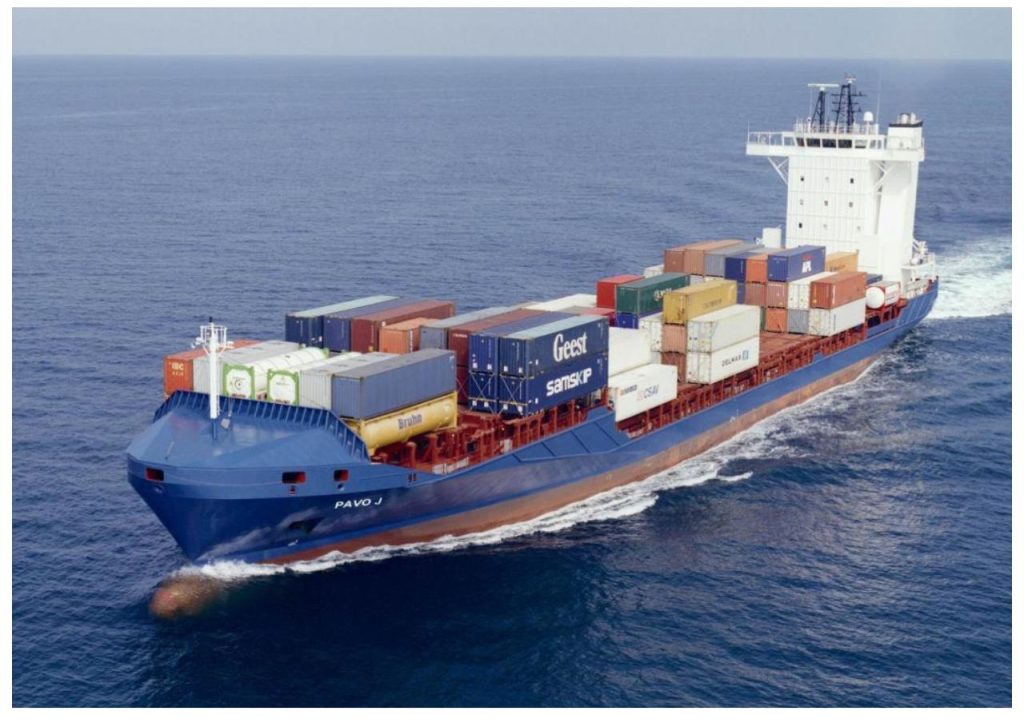
Ship Broker: An Overview
A ship broker is a professional intermediary who facilitates the buying, selling, chartering, and leasing of ships. Ship brokers play a critical role in the maritime industry by connecting shipowners with charterers, cargo owners, or even buyers and sellers in the sale of vessels. They act as middlemen in various shipping transactions, ensuring that both parties reach a mutually beneficial agreement.
Main Functions of a Ship Broker
Chartering
- Ship brokers help charterers find the right vessel for transporting goods, and they assist shipowners in finding suitable charterers. They typically deal with different types of charters, including voyage charters, time charters, and bareboat charters.
- For example, a broker might help a company find a bulk carrier to transport coal, or a tanker to move oil from one port to another.
Sale and Purchase (S&P)
- Ship brokers are involved in the sale and purchase of vessels. They connect shipowners looking to sell their ships with buyers, whether they are shipping companies or investment firms looking to acquire vessels for their fleet.
- Brokers often provide advice on market trends, vessel valuations, and help negotiate terms between buyers and sellers.
Ship Management
- In some cases, brokers also offer ship management services, helping owners manage their vessels, including tasks like arranging maintenance, compliance, and crew management.
Freight and Cargo
- Brokers can also facilitate the movement of cargo, helping cargo owners find the most suitable ships for their needs, negotiating freight rates, and advising on shipping logistics.
Contract Negotiation
- One of the primary duties of a ship broker is to negotiate the terms of charter parties, sales contracts, and other agreements between parties. Brokers ensure that the terms are fair, legally sound, and meet the expectations of both sides.
Types of Ship Brokers
Chartering Brokers
- These brokers specialize in the chartering of vessels for transporting cargo. They may focus on specific segments like dry bulk (coal, grain), liquid bulk (oil, chemicals), or container shipping.
- They help shipowners and charterers negotiate the best terms for voyage or time charters.
Sale and Purchase (S&P) Brokers
- These brokers deal with the buying and selling of ships. They assist in transactions involving new or second-hand vessels. Their role includes providing market analysis, ship valuations, and managing the negotiation process.
Freight Brokers
- Freight brokers focus on securing freight contracts between cargo owners and shipping lines. They often work with charterers to arrange the transport of goods, managing logistics, and ensuring the timely delivery of cargo.
Ship Finance Brokers
- Some ship brokers also work in the financing sector, helping shipowners secure financing for vessel purchases, shipyard contracts, or leasing deals. They may liaise with banks or investors to arrange loans or funding for maritime investments.
Skills and Expertise of Ship Brokers
Industry Knowledge: A good ship broker has extensive knowledge of the maritime industry, including shipping routes, vessel types, freight markets, and legal regulations.
Market Understanding: Brokers need to stay updated on global shipping trends, market rates, and demand for specific types of vessels and cargo. This allows them to advise clients on the best decisions and opportunities.
Negotiation Skills: Since brokers often act as intermediaries, strong negotiation skills are essential to reach favorable terms for both parties.
Legal Knowledge: Ship brokers need to understand maritime law, international trade regulations, and the specifics of shipping contracts like charter parties and sale and purchase agreements.
Networking: Building and maintaining relationships with shipowners, charterers, cargo owners, shipyards, and financial institutions is vital for brokers to succeed in this highly network-driven industry.
How Ship Brokers Are Paid
Ship brokers are typically paid on a commission basis, which is usually a percentage of the deal value. In chartering deals, the commission may be a percentage of the freight rate or charter hire, while in sales and purchase transactions, it could be a percentage of the purchase price of the vessel.
Charter Commission: Typically around 1.25% to 2.5% of the freight or hire value, depending on the terms of the deal and the type of cargo.
Sale & Purchase Commission: Usually between 1% and 2% of the vessel sale price.
The commission structure ensures that brokers are incentivized to work hard to secure deals that benefit both the shipowner and the charterer or buyer.
Why Ship Brokers are Important
Market Access: Ship brokers provide valuable market access and connections, making it easier for companies to find the right ship for their needs without having to spend time searching for individual deals or negotiating directly.
Time and Cost Efficiency: By handling the complex tasks of negotiation, paperwork, and due diligence, brokers save time and ensure that all legal and contractual obligations are properly met.
Expert Advice: Given their industry knowledge, brokers can offer critical advice on market conditions, vessel valuations, and the best strategic approaches for shipping or investing in maritime assets.
Conflict Resolution: In cases where disputes arise between parties (e.g., between shipowners and charterers), brokers often help resolve conflicts and ensure that both sides can reach an amicable agreement.
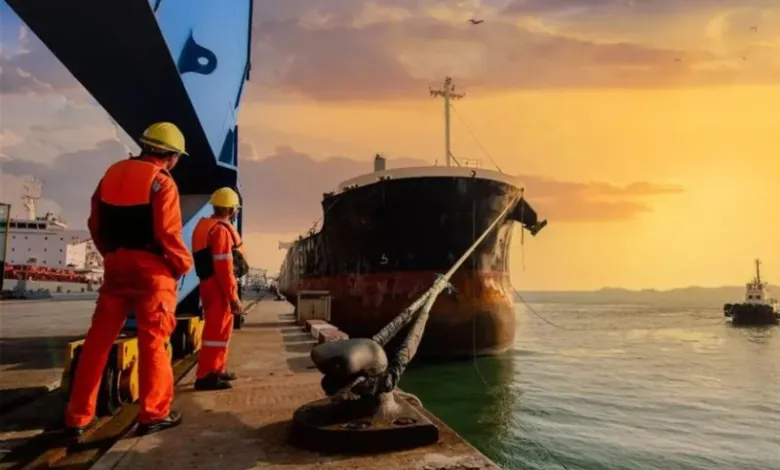
Ship crew change
refers to the process of replacing or rotating the crew members aboard a ship. It is a critical activity in maritime operations, as ships typically require a crew to be on board 24/7 to maintain their operations, ensure safety, and carry out their daily tasks. Crew changes are essential for maintaining crew well-being, addressing fatigue, and ensuring compliance with labor regulations. Here’s a detailed explanation:
1. Why Crew Changes Are Necessary
- Fatigue Management: Crew members work long hours and need regular rotations to avoid exhaustion, which can lead to mistakes and safety issues.
- Legal Compliance: Maritime labor laws, such as the International Labour Organization’s (ILO) Maritime Labour Convention (MLC), mandate specific working hours and rest periods for seafarers.
- Health and Safety: Crew changes are vital to ensure that seafarers are physically and mentally fit to perform their duties.
2. How Crew Changes Are Done
- Planning and Scheduling: A crew change typically involves careful planning to avoid disruptions. The shipping company or vessel operator will coordinate with port authorities, agents, and service providers to arrange for the safe and efficient transfer of crew.
- Port Arrangements: Crew members disembark at a port, while the new crew boards the vessel. This process may involve taking a small boat or tender to reach the ship, especially if the vessel is anchored offshore.
- Medical and Security Checks: Crew members may undergo health screenings, especially when transitioning from countries with different COVID-19 protocols or other health concerns. Security checks and immigration paperwork are also common.
- Logistical Support: Crew changes often require support services like transport to and from ports, accommodations, and sometimes training or briefing for the incoming crew about the ship’s operations, maintenance needs, and safety procedures.
3. Challenges in Crew Changes
- COVID-19 Pandemic: During the pandemic, crew changes became more complicated due to quarantine requirements, travel restrictions, and port closures. This led to many seafarers being stuck on ships beyond their scheduled rotations, facing extended work periods that raised concerns about mental health and safety.
- Logistics and Port Congestion: Some ports can be congested, which may delay crew changes. Furthermore, ensuring that crew members travel safely, especially when international travel is involved, can be a logistical challenge.
- Geopolitical and Economic Factors: Crew changes can also be affected by geopolitical tensions, economic sanctions, and changes in regulations that may restrict the movement of personnel.
4. Best Practices for Crew Changes
- Proactive Communication: Regular updates and clear communication between ship operators, crew members, and relevant authorities are essential to avoid delays and ensure smooth transitions.
- Flexibility in Scheduling: Given the unpredictable nature of maritime logistics, having a flexible crew change schedule can help mitigate unforeseen delays.
- Health and Safety Protocols: Ensuring that all health and safety standards, including vaccinations, medical tests, and other regulations, are adhered to is crucial, especially in the post-pandemic era.
- Support for Seafarers: Providing seafarers with proper rest, mental health support, and recreational facilities during crew changeovers helps maintain morale and ensures that the crew is fit for their duties.
5. Impact on Shipping Operations
- Efficient crew changes are vital to the smooth operation of the vessel. Delays in crew changeovers can result in operational delays, increased costs, and sometimes regulatory fines if vessels are unable to comply with manning regulations.
- A well-executed crew change ensures that the ship is always staffed with trained and rested personnel, which directly impacts the safety and efficiency of maritime transport.
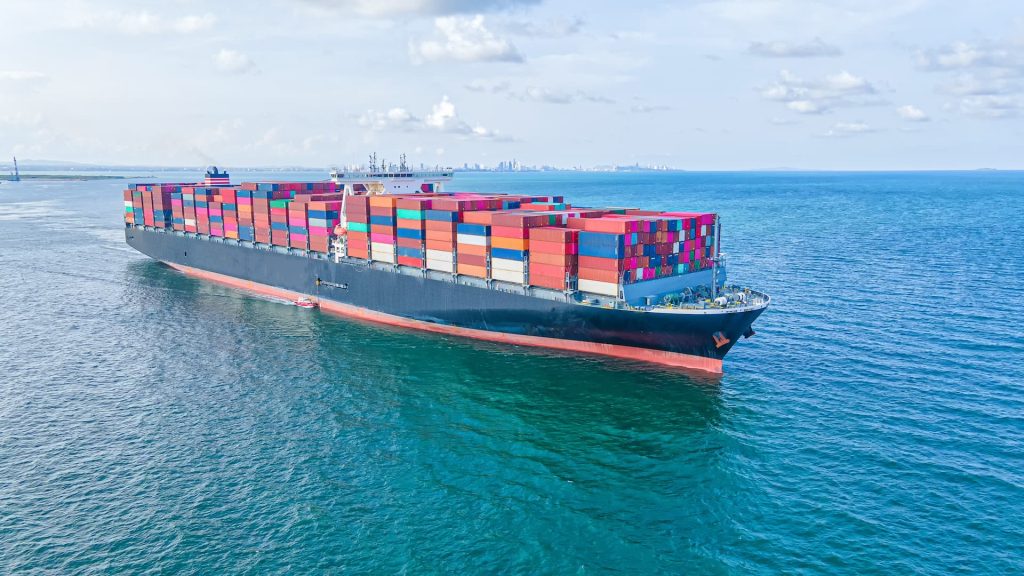
Ship Supplier: An Overview
A ship supplier is a company or business that provides goods and services to vessels operating at sea. These suppliers play a vital role in ensuring that ships are properly equipped, stocked, and ready to carry out their voyages. Ship suppliers deliver everything a vessel needs to stay operational, from food and water to spare parts, safety equipment, and fuel.
The services provided by ship suppliers can vary greatly depending on the type of vessel (cargo ship, cruise ship, tanker, etc.) and its specific needs, but all suppliers share the common goal of supporting the functioning of the maritime industry.
Types of Goods and Services Provided by Ship Suppliers
Provisions and Stores
- Provisions refer to food and drinks that are needed on board for the crew and passengers. These include items like fresh produce, canned goods, snacks, beverages, and specialized food items for specific diets (vegetarian, halal, etc.).
- Stores include non-food items required for daily operations, such as toiletries, cleaning supplies, and laundry materials.
Deck and Engine Stores
- Ship suppliers provide a wide range of deck stores, which are items required for the maintenance and operation of the ship’s deck. These may include ropes, cleaning materials, paints, tools, and safety equipment.
- Engine stores are parts and supplies necessary for maintaining the ship’s machinery. These can range from lubricants, fuel additives, and filters to more complex items like spare parts for the engine and power generation systems.
Spare Parts and Equipment
- Ships often require regular maintenance, and this involves the supply of spare parts for machinery, navigation systems, communication equipment, and other essential onboard systems.
- Suppliers often provide a just-in-time inventory service, ensuring that necessary parts and equipment are available when needed to avoid delays in ship operations.
Safety and Medical Supplies
- Safety supplies include life jackets, lifeboats, fire extinguishers, life rafts, emergency signaling devices, and other equipment that ensures the safety of crew and passengers in case of an emergency.
- Medical supplies are also an essential part of a ship supplier’s role. These include first aid kits, over-the-counter medications, and specialized equipment for treating medical emergencies at sea. Ships typically carry medical equipment required by international maritime regulations.
Fuel and Lubricants
- Ship suppliers also provide fuel (such as bunker fuel) and lubricants, which are essential for powering the ship’s engines. Bunker fuel is a type of heavy fuel used in marine engines, while lubricants are necessary to maintain the smooth operation of machinery and reduce wear and tear.
Ship Cleaning and Maintenance Materials
- Ships require regular cleaning and upkeep, both inside and outside. Suppliers provide cleaning agents, detergents, and special equipment for maintaining the cleanliness of the ship’s deck, cabins, and communal areas. They may also supply maintenance tools for the upkeep of the ship’s various systems.
Marine Equipment
- Ship suppliers provide essential marine equipment, such as navigation instruments, communication tools (radar, GPS, radios), and weather forecasting systems. Additionally, they supply accessories like anchors, winches, and ropes needed for docking, towing, or anchoring.
Shipping Documentation and Regulatory Support
- Some ship suppliers also assist with ensuring that ships are compliant with international maritime regulations. They help ensure that all necessary documentation is in order, such as customs clearance, import/export documentation, and maritime licenses.
Ship Supplier: An Overview
A ship supplier is a company or business that provides goods and services to vessels operating at sea. These suppliers play a vital role in ensuring that ships are properly equipped, stocked, and ready to carry out their voyages. Ship suppliers deliver everything a vessel needs to stay operational, from food and water to spare parts, safety equipment, and fuel.
The services provided by ship suppliers can vary greatly depending on the type of vessel (cargo ship, cruise ship, tanker, etc.) and its specific needs, but all suppliers share the common goal of supporting the functioning of the maritime industry.
Types of Goods and Services Provided by Ship Suppliers
Provisions and Stores
- Provisions refer to food and drinks that are needed on board for the crew and passengers. These include items like fresh produce, canned goods, snacks, beverages, and specialized food items for specific diets (vegetarian, halal, etc.).
- Stores include non-food items required for daily operations, such as toiletries, cleaning supplies, and laundry materials.
Deck and Engine Stores
- Ship suppliers provide a wide range of deck stores, which are items required for the maintenance and operation of the ship’s deck. These may include ropes, cleaning materials, paints, tools, and safety equipment.
- Engine stores are parts and supplies necessary for maintaining the ship’s machinery. These can range from lubricants, fuel additives, and filters to more complex items like spare parts for the engine and power generation systems.
Spare Parts and Equipment
- Ships often require regular maintenance, and this involves the supply of spare parts for machinery, navigation systems, communication equipment, and other essential onboard systems.
- Suppliers often provide a just-in-time inventory service, ensuring that necessary parts and equipment are available when needed to avoid delays in ship operations.
Safety and Medical Supplies
- Safety supplies include life jackets, lifeboats, fire extinguishers, life rafts, emergency signaling devices, and other equipment that ensures the safety of crew and passengers in case of an emergency.
- Medical supplies are also an essential part of a ship supplier’s role. These include first aid kits, over-the-counter medications, and specialized equipment for treating medical emergencies at sea. Ships typically carry medical equipment required by international maritime regulations.
Fuel and Lubricants
- Ship suppliers also provide fuel (such as bunker fuel) and lubricants, which are essential for powering the ship’s engines. Bunker fuel is a type of heavy fuel used in marine engines, while lubricants are necessary to maintain the smooth operation of machinery and reduce wear and tear.
Ship Cleaning and Maintenance Materials
- Ships require regular cleaning and upkeep, both inside and outside. Suppliers provide cleaning agents, detergents, and special equipment for maintaining the cleanliness of the ship’s deck, cabins, and communal areas. They may also supply maintenance tools for the upkeep of the ship’s various systems.
Marine Equipment
- Ship suppliers provide essential marine equipment, such as navigation instruments, communication tools (radar, GPS, radios), and weather forecasting systems. Additionally, they supply accessories like anchors, winches, and ropes needed for docking, towing, or anchoring.
Shipping Documentation and Regulatory Support
- Some ship suppliers also assist with ensuring that ships are compliant with international maritime regulations. They help ensure that all necessary documentation is in order, such as customs clearance, import/export documentation, and maritime licenses.
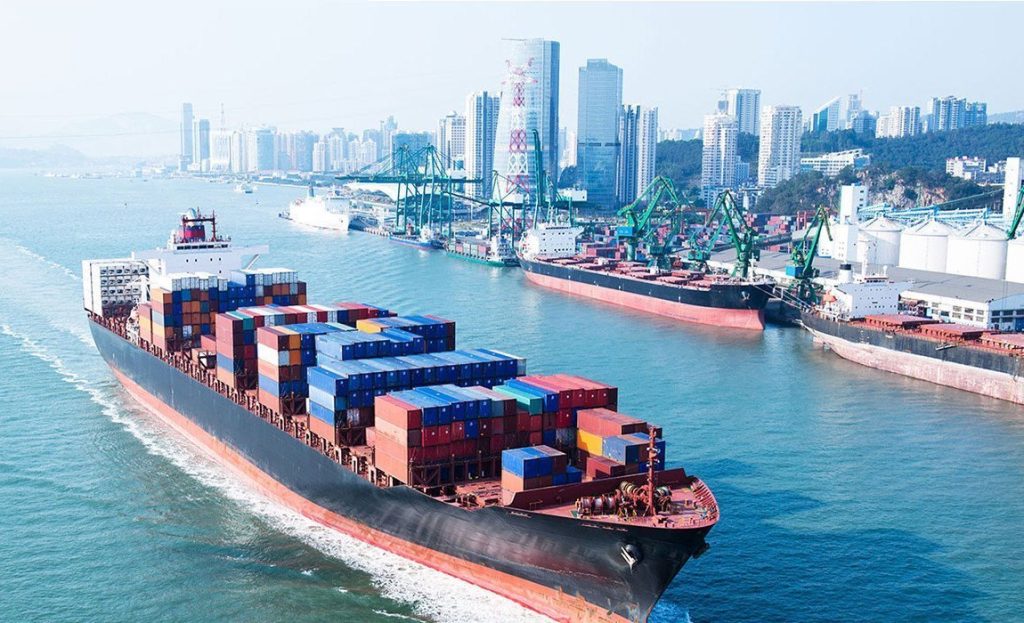
Ship Agent Representative in Egypt: An Overview
A ship agent representative in Egypt acts as an intermediary between the shipowner or operator and the various local authorities and services necessary for the efficient operation of a vessel calling at Egyptian ports. Ship agents are crucial in ensuring smooth port operations, including customs clearance, cargo handling, crew changes, ship supplies, and compliance with Egyptian maritime regulations. The role of a ship agent representative is particularly important given Egypt’s strategic location as a key maritime hub, especially with the Suez Canal serving as one of the world’s busiest and most vital waterways.
Role and Responsibilities of a Ship Agent Representative in Egypt
Port Operations Management
- A ship agent represents the interests of the shipowner or operator in various Egyptian ports, including major ports like Port Said, Alexandria, Suez, Damietta, and Safaga.
- The agent coordinates and manages all port operations, including docking, mooring, and ensuring the ship is ready for loading or unloading cargo. They liaise with port authorities to ensure that the ship is in compliance with local regulations.
Customs and Immigration Clearance
- One of the key tasks of a ship agent is to ensure that the vessel and its crew comply with Egyptian customs and immigration requirements. This includes facilitating the clearance of cargo, handling documentation for imports and exports, and ensuring that the necessary permits are in place for the ship’s operations in Egyptian waters.
- The agent also coordinates with immigration authorities for crew sign-on and sign-off procedures, ensuring that all legal formalities are handled efficiently.
Cargo Handling and Logistics Coordination
- The ship agent oversees cargo operations, including managing loading and unloading, storage, and the transport of goods to or from the ship. They may also coordinate the delivery of specialized cargo, such as dangerous goods, perishable items, or oversized equipment.
- The agent works with stevedores, terminal operators, and logistics providers to ensure that the ship is loaded or unloaded as quickly as possible, minimizing delays and ensuring smooth cargo operations.
Crew Change and Welfare Services
- Ship agents play a key role in facilitating crew changes in Egyptian ports. They assist with arranging travel for crew members who need to sign off or sign on, ensuring they have the necessary documentation and transportation.
- They also provide support for crew welfare, including arranging medical assistance, providing supplies, and helping with any other crew-related needs while the ship is in port.
Supply and Bunkering
- Ship agent representatives organize the supply of provisions (food, water, medical supplies) and bunkers (fuel) for vessels. They coordinate with suppliers and fuel companies to ensure that the ship has everything it needs to continue its journey or stay in port.
- They also arrange other essential services, such as waste disposal and fresh water delivery, and handle maintenance services for the ship while it is docked.
Shipyard and Maintenance Services
- If the ship requires repairs or maintenance, the agent will coordinate with local shipyards, marine engineers, and suppliers to arrange the necessary services. This could involve mechanical repairs, hull cleaning, or dry docking, which may be required during the vessel’s stay in Egypt.
Navigational and Pilotage Services
- Egypt’s ports, especially those near the Suez Canal, require the assistance of local pilots to safely navigate the ship in and out of the harbor. The ship agent coordinates the availability of a licensed pilot and ensures the vessel is safely navigated through Egyptian waters, including the Suez Canal if applicable.
- The agent also arranges for tugboats or other port services necessary for docking, undocking, or navigating tricky waters.
Port and Environmental Compliance
- Ship agents ensure that ships comply with Egyptian port regulations and international environmental standards. This may include compliance with waste management, pollution control, and safety regulations.
- They also help with arranging inspections or certifications required by Egyptian authorities to ensure the vessel meets safety and environmental criteria.
Emergency Response
- In case of emergencies, such as accidents, medical issues, or technical failures, the ship agent is the first point of contact for the shipowner. They coordinate the response efforts with relevant local authorities, such as coast guard, medical teams, or environmental services.
Strategic Importance of Ship Agents in Egypt
Egypt is a global shipping hub, thanks in large part to the Suez Canal, which connects the Mediterranean Sea to the Red Sea and facilitates trade between Europe, Asia, and Africa. As a result, Egyptian ports handle a significant volume of global shipping traffic, including container vessels, oil tankers, bulk carriers, and cruise ships.
Suez Canal: The Suez Canal is one of the busiest and most important shipping routes in the world. A ship agent representative in Egypt plays a critical role in assisting vessels transiting the canal, arranging for pilotage, coordinating toll payments, and managing the operational aspects of the vessel’s passage through the canal.
Strategic Ports: In addition to the Suez Canal, Egypt’s other major ports, such as Port Said, Alexandria, and Damietta, are also vital to international trade. Ship agents are responsible for ensuring that these ports are efficiently serviced, ensuring the smooth operation of vessels entering and leaving these critical shipping nodes.
Key Qualifications of Ship Agent Representatives in Egypt
Local Knowledge and Expertise
- Ship agents must have an in-depth understanding of Egyptian maritime law, customs regulations, and port procedures. They must be familiar with local port authorities, the shipping infrastructure, and the complexities of managing vessels in Egyptian ports.
Strong Network
- Successful ship agents have a strong network of contacts in the maritime industry, including port authorities, customs officials, terminal operators, shipping lines, logistics companies, and crew management services. This network helps them handle the various aspects of ship operations quickly and efficiently.
Multilingual Skills
- Given Egypt’s international trade and the diverse nature of shipping, ship agents are often required to communicate with foreign ship owners, crew members, and international authorities. Fluency in languages such as English and Arabic is essential for effective communication.
Problem-Solving and Coordination
- Ship agents are expected to handle challenges quickly and efficiently. Whether it’s a last-minute change in cargo, a medical emergency, or sudden weather disruptions, agents must be able to coordinate solutions across various stakeholders to ensure that the ship’s operations are not delayed.

Ship Owner Representative in Egypt: An Overview
A ship owner representative in Egypt is a professional or company that acts on behalf of the shipowner in various aspects of vessel operations, port services, and legal matters. The role of a ship owner representative is critical, especially in a maritime hub like Egypt, which has a number of key ports and the Suez Canal, one of the world’s most important shipping lanes. The representative ensures that the shipowner’s interests are effectively managed during the vessel’s stay in Egyptian waters and that all operational, legal, and logistical needs are met.
Key Responsibilities of a Ship Owner Representative in Egypt
Port Operations and Logistics
- The ship owner representative is responsible for managing all port-related operations for vessels calling at Egyptian ports. This includes coordinating with local port authorities, terminal operators, and service providers to ensure the ship’s smooth arrival, docking, loading/unloading, and departure.
- They arrange for tugboat services, mooring, pilotage (especially in the Suez Canal), and ensure that the vessel is handled in compliance with all local regulations and best practices.
Customs, Immigration, and Regulatory Compliance
- The representative ensures that the vessel and its crew comply with customs and immigration regulations when entering or leaving Egyptian ports. This includes handling the clearance of goods, arranging necessary paperwork, and coordinating with Egyptian authorities to avoid any legal or administrative delays.
- They also ensure that the vessel meets all international maritime regulations and local Egyptian laws, including safety, environmental, and health standards as set by Egyptian authorities and international conventions (such as the Maritime Labour Convention and IMO regulations).
Crew Welfare and Crew Change Coordination
- A ship owner representative plays a key role in organizing crew changes, assisting with immigration and visa arrangements, ensuring that crew members sign on or sign off in accordance with the ship’s schedule.
- They also coordinate crew welfare services such as medical assistance, shore leave, and logistics related to crew travel to and from the ship, including transportation to the airport or hotels.
Supplies and Bunkering Services
- The representative arranges for the supply of provisions (food, water, medical supplies) and bunkering (fuel) for the vessel while in port. This includes ordering fresh water, food, cleaning supplies, and ensuring the timely delivery of fuel.
- They may also arrange for technical supplies, such as spare parts for ship maintenance, and coordinate any dry-docking or repair services needed while the vessel is in port.
Legal and Contractual Matters
- Ship owner representatives in Egypt often assist with legal matters, such as resolving disputes with cargo owners, contractors, or port authorities. They may also help ensure that the ship’s contracts are properly managed, including charter agreements, lease agreements, or any service contracts with local suppliers or contractors.
- If legal issues arise while the ship is docked in Egypt, such as detention, fines, or contractual breaches, the representative acts as an advocate for the shipowner and liaises with legal professionals, government bodies, and other stakeholders to resolve the issue.
Emergency Response and Crisis Management
- In the event of an emergency, such as an accident, equipment failure, medical emergency, or environmental incident (e.g., oil spill), the ship owner representative is often the first point of contact. They coordinate with local authorities (e.g., coast guard, health services, port police), ship management teams, and insurance companies to handle the crisis and minimize any operational or legal fallout.
- This may also include managing emergency repairs, arranging medical evacuations, or dealing with unexpected delays.
Financial Management and Reporting
- The ship owner representative manages financial aspects of the vessel’s operations in Egypt, including arranging for payments of port charges, pilotage fees, docking fees, and other local service costs.
- They are responsible for ensuring that invoices and financial transactions are transparent and in line with agreements made between the shipowner and local service providers.
Suez Canal Transit Coordination
- A key responsibility for ship owner representatives in Egypt is coordinating the transit of ships through the Suez Canal. This involves managing all logistics for entering, transiting, and exiting the canal, including coordinating with Suez Canal Authorities for pilotage services, toll payments, and ensuring the vessel complies with all specific regulations regarding canal transit.
Supply Chain and Freight Management
- In Egypt’s busy ports, managing cargo and supply chain operations is critical. The ship owner representative ensures that cargo is loaded or unloaded efficiently and according to schedule, and that any logistical challenges (such as warehouse storage or transport to inland destinations) are addressed.
Importance of a Ship Owner Representative in Egypt
Egypt’s maritime sector plays a critical role in global trade, thanks to its strategic location and key ports like Port Said, Alexandria, Damietta, and Suez. The Suez Canal itself is a vital shipping route connecting the Mediterranean Sea to the Red Sea, facilitating the movement of goods between Europe, Asia, and Africa. Because of this strategic importance, ship owner representatives are crucial for:
Optimizing Vessel Operations
- The representative ensures that the shipowner’s vessel operates at maximum efficiency in Egyptian ports, minimizing downtime and ensuring timely operations. They manage the entire logistics process, from port entry to departure, ensuring smooth coordination among all involved parties.
Ensuring Legal and Regulatory Compliance
- With Egypt being a key maritime country, ensuring compliance with local regulations and international maritime standards is vital. The ship owner representative ensures that the ship is operating legally and in line with Egyptian and international laws, avoiding potential fines or detention.
Handling Crisis Situations
- Shipowners often rely on their representative to handle crises, such as accidents, legal disputes, or medical emergencies. The representative’s role as a local point of contact ensures that such issues are managed quickly, efficiently, and in the best interests of the shipowner.
Managing Financial Transactions
- In a port environment, various fees and services are involved (e.g., port fees, fuel bunkering, pilotage). The ship owner representative manages all financial aspects related to vessel operations in Egypt, ensuring transparency and compliance with financial agreements.
Supporting Efficient Suez Canal Transit
- Given the importance of the Suez Canal for international shipping, having a local representative ensures smooth and timely transits through the canal, which is essential for global supply chains. The representative handles the complex logistics of navigating the canal and ensures compliance with all Suez Canal regulations.
Skills and Qualifications of a Ship Owner Representative
Local Expertise
- A successful ship owner representative must have deep knowledge of Egypt’s maritime laws, customs procedures, and port operations. This local expertise is crucial for ensuring smooth operations and avoiding delays or legal issues.
Strong Networking and Communication
- The representative must have excellent networking skills, as they interact with a wide range of stakeholders including port authorities, customs officers, service providers, contractors, and legal professionals.
Problem-Solving Abilities
- Ship owner representatives need to be quick thinkers and good problem solvers, able to manage crises or resolve operational issues efficiently and effectively.
Multilingual Skills
- In a global shipping environment, multilingual capabilities (especially English and Arabic) are beneficial, as they facilitate communication with international clients, crew, and authorities.
Understanding of International Maritime Standards
- The representative must have a comprehensive understanding of international maritime regulations (IMO, SOLAS, MARPOL, etc.) as well as local Egyptian maritime laws and customs.
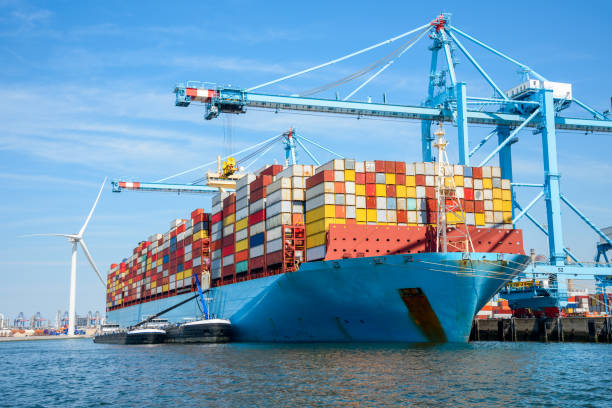
Ship Loading and Discharging Operations in Egypt: An Overview
Ship loading and discharging operations in Egypt are integral to the functioning of the country’s maritime industry, as Egypt is home to some of the busiest and most strategically located ports in the world. The most notable of these is the Suez Canal, a key shipping route connecting the Mediterranean Sea to the Red Sea, which facilitates the movement of goods between Europe, Asia, and Africa. Other important ports include Alexandria, Port Said, Damietta, Suez, and Safaga, all of which handle various types of cargo ranging from containerized goods to bulk commodities, oil, and general cargo.
Efficient loading and discharging operations are critical for maintaining the smooth flow of trade, ensuring that vessels can operate on tight schedules, and minimizing port congestion. These operations involve coordination between various stakeholders, including port authorities, terminal operators, shipping lines, stevedores (dock workers), and logistics companies.
Key Elements of Ship Loading and Discharging Operations
Port Infrastructure
- Ports in Egypt are equipped with specialized facilities for the loading and discharging of different types of cargo. This includes container terminals, bulk cargo terminals, liquid cargo terminals (for oil, chemicals, etc.), and general cargo terminals.
- The infrastructure includes cranes, conveyors, storage facilities, and specialized equipment designed to handle specific cargo types, such as dry bulk (e.g., grain, coal), liquid bulk (e.g., oil, chemicals), and general cargo (e.g., machinery, steel).
Cargo Handling Types
- Containerized Cargo: The majority of Egypt’s import/export cargo is containerized, particularly in ports like Alexandria and Port Said. Containers are loaded and discharged using gantry cranes or ship-to-shore cranes. These operations are highly automated and efficient, enabling quick turnaround times for vessels.
- Bulk Cargo: Bulk carriers transporting goods such as coal, grain, or oil require specialized equipment. Bulk loading and discharging operations often use hoppers, conveyor belts, or grab cranes to transfer cargo from the ship to storage areas or vice versa.
- Liquid Cargo: Ports like Suez and Alexandria have facilities for handling liquid cargo, such as oil and chemicals, using pipeline systems for discharging and loading, as well as specialized pumping equipment to ensure safe and efficient transfer.
- Breakbulk Cargo: Non-containerized goods, such as large machinery, vehicles, and steel products, are handled using dock cranes or forklifts. These goods are typically loaded or unloaded piece-by-piece, depending on their size and weight.
Pre-Loading and Discharging Preparations
- Before loading or discharging, careful planning and coordination is required. The shipowner, port authorities, and stevedoring companies communicate to ensure that all cargo handling equipment is ready, cargo manifests are accurate, and the correct procedures are followed.
- Cargo Surveys are often conducted to check for any damage or discrepancies in the goods being loaded or discharged. This is particularly important for sensitive goods like chemicals, perishable goods, or hazardous materials.
Loading Operations
- Container Loading: For container ships, cargo is often loaded according to a pre-determined stowage plan. Containers are moved from storage yards or docks to the ship using forklifts, straddle carriers, or automated systems. Gantry cranes then lift containers onto the ship, stacking them in a balanced and secure manner to prevent cargo shifting during the voyage.
- Bulk Cargo Loading: In the case of bulk carriers, bulk cargo is loaded using grab cranes, conveyor systems, or pneumatic devices. Cargo is stored in the ship’s holds, and the loading rate depends on the type of cargo, the ship’s capacity, and the equipment at the port.
- Liquid Cargo Loading: For liquid bulk carriers, loading typically involves pumping stations connected to pipelines. These pipelines are used to transfer liquids (such as oil or chemicals) from storage tanks at the terminal to the ship’s tanks. The loading process is closely monitored to prevent overloading and ensure safety.
- Breakbulk Loading: For breakbulk cargo, specialized cranes or forklifts are used to load heavy or large items onto the vessel, often requiring careful planning to balance the load evenly across the ship’s holds.
Discharging Operations
- Container Discharging: When a vessel arrives at port for discharging, containers are unloaded using gantry cranes, which lift the containers off the ship and onto the quay. The containers are then transferred to storage yards or onward transportation, such as trucks or trains, for distribution.
- Bulk Cargo Discharging: Bulk cargo discharging usually involves unloading the cargo from the ship’s holds into hoppers or directly onto conveyor belts. Bulk carriers typically discharge their cargo to stockpiles or silos at the port for further transportation to warehouses or other facilities.
- Liquid Cargo Discharging: For liquid bulk carriers, discharging involves pumping the cargo from the ship’s tanks to the terminal’s storage tanks via pipelines. The operation is closely monitored for safety and regulatory compliance, especially in the case of hazardous materials.
- Breakbulk Discharging: For breakbulk cargo, cranes, forklifts, and sometimes smaller port equipment are used to unload large or irregularly shaped items. These operations require careful planning to avoid cargo damage and ensure safe handling of heavy or oversized goods.
Safety and Environmental Considerations
- Safety is a top priority during loading and discharging operations. Ports in Egypt, like other major maritime hubs, adhere to strict international and local safety standards. This includes ensuring that all personnel are properly trained, using personal protective equipment (PPE), and adhering to procedures for handling hazardous materials.
- Environmental protection is also a key concern. Ports are required to comply with international regulations such as MARPOL (International Convention for the Prevention of Pollution from Ships) and other local laws aimed at preventing pollution. This includes measures for controlling oil spills, managing waste disposal, and protecting marine life during cargo operations.
Port Authority and Customs Involvement
- Egyptian ports are managed by state-owned port authorities, such as the Suez Canal Authority, Alexandria Port Authority, or Port Said Port Authority, which oversee the overall coordination of port operations, including loading and discharging activities.
- Customs and regulatory authorities are involved in the clearance of goods before they can be loaded or discharged. This may include inspections, documentation checks, and ensuring that all tariffs and taxes are paid before goods are allowed to leave or enter the country.
The Role of Technology in Ship Loading and Discharging Operations
Modern Egyptian ports increasingly rely on technology and automation to streamline loading and discharging operations, reduce turnaround times, and improve overall efficiency. This includes the use of:
- Automated Cargo Handling Systems: These include automated cranes and storage systems, which increase the speed and efficiency of container handling operations.
- Port Management Software: Advanced software systems help in planning, managing, and tracking cargo movements in real time. This ensures that ships are loaded and unloaded according to the most efficient schedules.
- Digital Documentation: Ports are adopting electronic systems for managing cargo manifests, customs clearance, and billing, reducing paperwork and improving data accuracy.
Challenges in Ship Loading and Discharging Operations in Egypt
Port Congestion
- Egypt’s major ports, particularly Alexandria and Port Said, can experience congestion due to the high volume of vessels passing through. This can delay loading and discharging operations, especially during peak periods. Efficient scheduling and port capacity expansion are important solutions to this challenge.
Weather and Environmental Conditions
- Weather conditions, such as high winds or fog, can delay loading and discharging activities. Additionally, storms or rough seas can impact cargo handling equipment, especially cranes and unloading systems.
Regulatory Compliance
- Egypt’s ports must ensure compliance with international maritime standards, environmental regulations, and local laws. Adhering to safety and environmental protocols can sometimes slow down operations but is crucial for preventing accidents and ensuring legal compliance.
Labor and Strike Issues
- Like many countries, Egypt’s port operations are influenced by labor conditions. Strikes, disputes, or labor shortages can cause delays in loading and discharging cargo.

